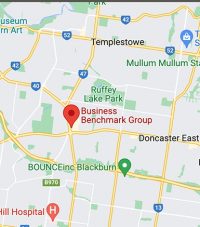A close friend, a successful business owner, recently shared an insightful story with me that’s quite relevant today. It would be valuable to share it with you. Have you ever heard of the question, “Does it make the boat go faster?”
At Business Benchmark Group, this question has become a fundamental part of our decision-making process, especially when evaluating our business performance. Let me share the story with you, and you’ll understand why this question has become our cornerstone.
Peter Blake, a renowned New Zealand yachtsman, achieved remarkable success in sailing. He won the Whitbread Round the World Race, set the fastest time worldwide in 74 days, 22 hours, 17 minutes, and 22 seconds for the Jules Verne Trophy, and led Team New Zealand to multiple victories in America’s Cup in 1995 and 2000. Team New Zealand achieved these victories despite facing financially stronger American competitors.
In a sport where deep pockets often correlate with success, Blake understood the importance of financial resources. However, he also recognized that success in sailing involved thousands of factors and decisions, from sail types and equipment to crew composition and training. The key was to identify what truly mattered.
So, amidst all these considerations, what do you think Blake and his team decided to focus on?
Applying the Concept to Your Business
Just like in the business world, they realized that not all factors were equally important, and prioritizing the right ones was critical. Peter Blake distilled his strategy to one essential question: “Will it make the boat go faster?”
With this singular focus, the New Zealand team reevaluated every sailing and racing strategy aspect. They changed training, crew composition, equipment specifications, and sail designs.
The results were astonishing: back-to-back America’s Cup victories in 1995 and 2000, along with the development of a genuine team spirit, alignment, and focus.
Now that you’ve learned the history behind “Will it make the boat go faster?” How can you apply this concept to your business?
How can you, like Team New Zealand, position yourself as a formidable contender in your industry? Achieving success requires determination and persistence, but being a true winner hinges on whether it will make the boat go faster?

Adopting the Concept as a Guiding Principle
At Business Benchmark Group, we’ve embraced this concept, starting our week by posing this question to every team member during our Monday morning meeting: “What are you doing this week that will make the boat go faster?” Each team member shares their focus for the week.
You might have all the resources, capital, time, and personnel in the world, but if your actions don’t make the boat go faster, how will they help you win the race?
I encourage you to adopt this concept as a part of your business culture and a guiding principle for your team. Make it a question that every team member asks themselves.
It will help you define your goals, clarify your vision, and determine the most efficient path from point A to point B.
The last few years have presented numerous challenges, but every challenge is also an opportunity. To succeed, you must maintain a laser-like focus on the right priorities.
Staying Focused and in Control
Business owners who concentrate on what accelerates their progress will adapt more swiftly to changing conditions. In the business world, as in nature, it’s the most adaptable that survives.
I recommend adopting this concept for your business from now on. It’s not just a way of doing business; it’s a method for staying focused and in control.
Suppose you’re interested in learning more about applying this concept to your business and connecting with like-minded professionals. In that case, I invite you to join our Facebook group, Trades and Construction Mastermind. Let’s work together to make the boat go faster!








